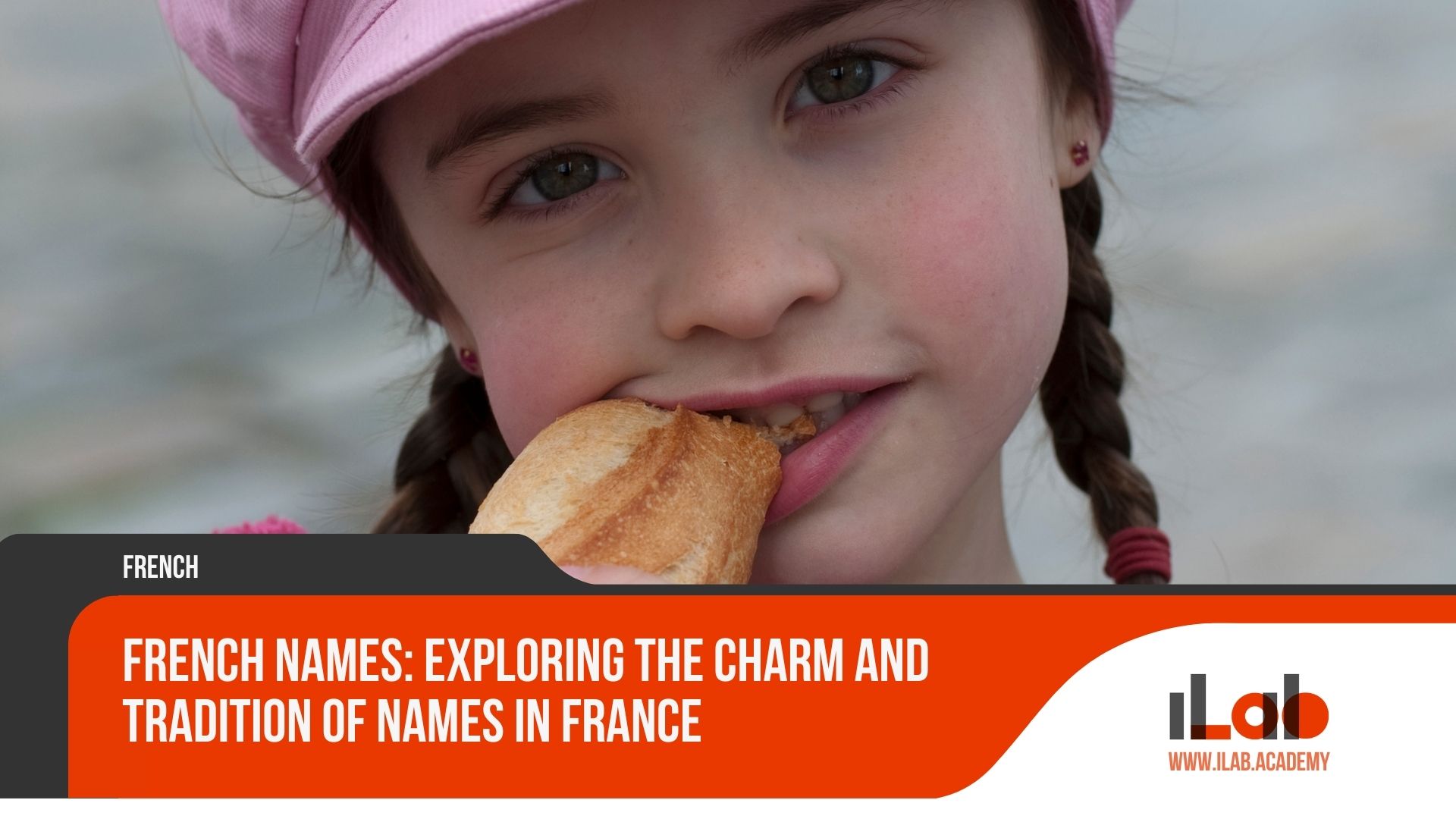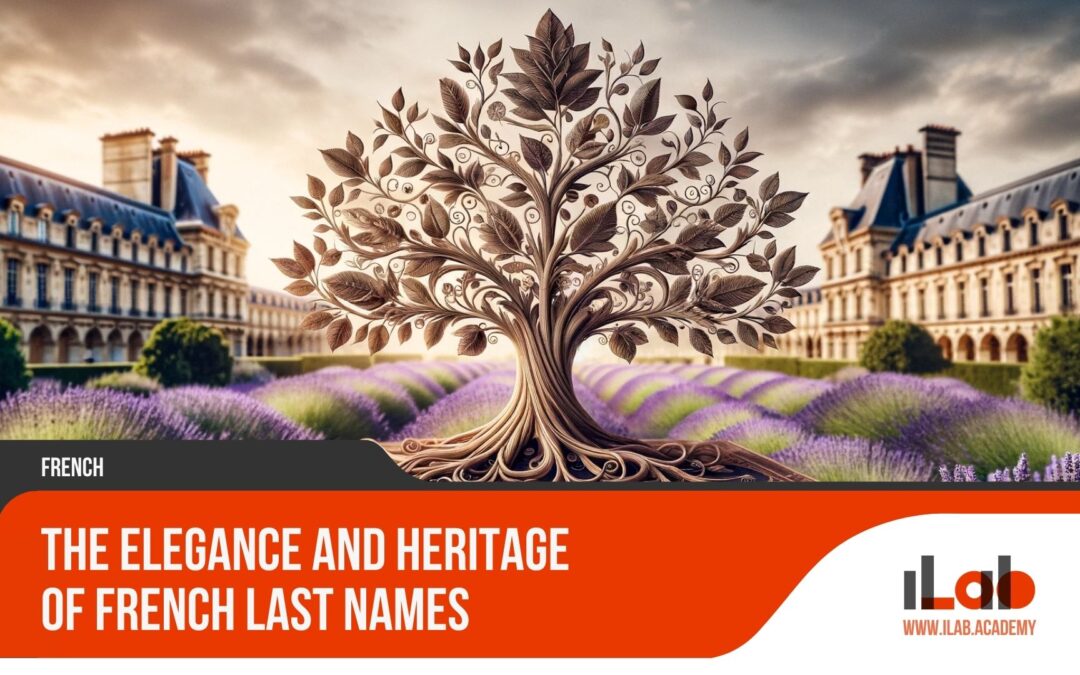Table of contents
In the realm of onomastics, French names present an intriguing subject for investigation, imbued with historical significance and cultural nuance. The allure of these names goes beyond their melodious sounds; they are a confluence of linguistic evolution, legal frameworks, and societal shifts. Tracing their etymology often leads to fascinating discoveries about the origins and the values held by the French people over the centuries. The stringent naming laws, once fiercely protective of traditional Christian names, have gradually relaxed, echoing the country’s journey towards a more pluralistic society. Yet, as this discussion will illuminate, the resonance of historical figures and literary greats continues to influence contemporary naming practices. This exploration invites a closer examination of the subtle complexities that define French names and, in turn, how they define the cultural identity of France itself. One might ponder, what revelations about French society can be distilled from the names passed down through generations?
Key Takeaways
- French names have deep historical and cultural roots, influenced by Latin, Germanic, and regional languages.
- Popular French names carry meanings and cultural connotations, reflecting the stories and traits they signify.
- French surnames often indicate geographic origins or family trades, showcasing the diversity and regional specificity of France.
- French naming practices have evolved over time, reflecting broader cultural shifts and legal attitudes towards personal names.
The Art and Etymology of French Names
The intricate tapestry of French names is woven from a rich historical palette, with etymological threads stretching back to Latin, Germanic, and various regional linguistic traditions. These names not only carry with them the whispers of the past but also mirror the artistic nature of the French language and culture. Deeply embedded in the very fabric of French identity, the origins of these names are as diverse as the history of France itself.
The Latin influence on French names is particularly pronounced, a relic of the Roman occupation of Gaul. As Latin evolved into the Romance languages, including Old French, it left an indelible mark on personal names. Classic examples include names like ‘Antoine’ from ‘Antonius’ and ‘Claude’ from ‘Claudius’. These names carry with them not only a sense of antiquity but also the gravitas of their original bearers.
Complementing the Latin roots, the Germanic influence emerged with the migration of Frankish tribes into what is now modern-day France. This intermingling of cultures added a robustness to French names, with names like ‘Louis’ (from the Germanic ‘Chlodowig’) and ‘Charles’ (from ‘Karl’) signifying power and leadership. These Germanic names often reflect warrior virtues and the valor of ancient leaders.
Regional languages, such as Breton, Occitan, and Catalan, contribute to the mosaic of French names, adding a layer of local color and identity. For instance, the name ‘Yves’ is of Breton origin, highlighting the regional diversity within French naming practices.
Understanding the art and etymology of French names offers a window into the soul of French heritage, a fusion of history, culture, and linguistic evolution that continues to influence naming conventions to this day.
Popular French Names and Their Meanings
Among the tapestry of French culture, certain names stand out for their popularity and the rich meanings they carry, reflecting the virtues and characteristics esteemed by French society. These names are not just labels, but embodiments of history, traits, and aspirations that resonate with French parents and the values they wish to bestow upon their children.
Here are a few examples of popular French names and the significance they hold:
- Emma: A name of Germanic origin meaning “whole” or “universal,” Emma has enjoyed a surge in popularity. It conveys a sense of completeness and global appeal, which may explain its contemporary popularity in France.
- Lucas: Stemming from the Latin “lux,” meaning “light,” Lucas is associated with illumination and clarity. It’s a name that suggests guidance and insight, attributes that are highly regarded in French culture.
- Chloé: Derived from the Greek “khloe,” meaning “young green shoot,” Chloé symbolizes new growth and fertility. It evokes the freshness of spring and the potential for life and renewal, themes that are cherished in the cycle of life.
The appreciation for these names reflects a broader cultural tradition of selecting meaningful appellations that capture the essence of personal identity and heritage. Each name carries a story, a set of expectations, and a touch of artistic creativity that is intrinsic to French naming practices.
French Surnames and Their Regional Variations
Just as individual names like Emma, Lucas, and Chloé carry significant meaning and history, so too do French surnames reveal fascinating insights into regional identities and ancestral occupations. These surnames are not just labels inherited by birth; they are storied maps tracing the lineage of families to particular locales and trades. The etymology of French surnames often underscores the professions once dominated by certain families, such as “Boulanger” for baker, or “Carpentier” for carpenter.
In France, regional variations of surnames are particularly pronounced, bearing witness to the country’s diverse tapestry of cultures and languages. For instance, surnames like “Dupont” or “Durand” are ubiquitous and can be found across the country, whereas “Lefebvre” is more commonly encountered in the north and “Girard” in the east. The southern regions, influenced by Occitan and Catalan cultures, contribute unique surnames like “Roux”, which reflects the Occitan word for “red” and often denotes someone with red hair.
Moreover, the historical intermingling of border regions has led to a fascinating blend of French surnames with those of neighboring countries. In Alsace and Lorraine, names might have Germanic influence, such as “Schneider” or “Weber”. In Brittany, Celtic heritage is evident with names like “Le Roux” or “Le Gall”.
These surnames are not static relics of the past; they continue to evolve and adapt, much like the regions they represent. As such, French surnames offer a unique window into the regional histories and cultural identities that have shaped France, providing an enduring connection to the ancestry and societal evolution of one of Europe’s most storied nations.
Naming Laws in France: Tradition vs. Modernity
In France, the legal framework for personal names has seen significant transformation, evolving from stringent regulations to a more liberal approach that reflects the changing dynamics of French society. Historically, French naming laws were quite restrictive. Parents were expected to choose names for their children from a pre-approved list of traditional Christian saints’ names and names from ancient history. This practice was rooted in the desire to maintain cultural cohesion and to respect the country’s predominantly Catholic heritage.
However, over the years, there has been a significant shift towards individual expression and modernity in naming practices. This change has been reflected in the legal system as well. The reforms have eased restrictions, allowing parents greater freedom in naming their children. These changes are indicative of a society that values personal liberty and diversity, as well as one that is adapting to globalization and the influences of other cultures.
Key points in the evolution of French naming laws include:
- Pre-1993 Restrictions: Until a reform in 1993, French parents were required to select baby names from an official list, which was mostly composed of traditional Christian names.
- Post-1993 Liberalization: After the reform, parents were given the freedom to choose names outside the traditional list, provided they did not harm the child’s interests.
- Current Considerations: In today’s France, names can be challenged only if they are deemed detrimental to the child, such as by exposing them to mockery or ridicule.
The modern approach to naming in France allows for a blend of tradition and innovation, where the importance of cultural heritage is balanced with the evolving nature of French identity. The current naming laws respect the right of parents to choose names that reflect their personal tastes and cultural influences, while still protecting children from potential harm related to their names.
The Influence of Literature and History on French Names
The tapestry of French culture, woven with threads of historical events and literary masterpieces, has profoundly influenced the popularity and connotations of many French personal names. Historical figures like Napoleon and Louis have cemented their names in the annals of time, often evoking strong images of leadership and royalty. Similarly, literature has been a significant source of inspiration. The works of authors such as Victor Hugo and Marcel Proust have introduced names that carry with them the weight and charm of their fictional counterparts.
To illustrate, let’s examine a few names through a table that highlights their literary and historical significance:
| Name | Source of Influence | Cultural Significance |
|---|---|---|
| Hugo | Victor Hugo (Author) | Creativity, Artistic Legacy |
| Émile | Émile Zola (Author) | Intellect, Social Change |
| Antoine | Antoine de Saint-Exupéry (Author) | Adventure, Humanism |
| Jeanne | Jeanne d’Arc (Historical) | Bravery, National Heroism |
| Louis | King Louis XIV (Historical) | Royalty, Historical Importance |
Names such as Hugo and Émile resonate with the literary prestige of their namesakes, while Antoine evokes the adventurous spirit of “The Little Prince” author. Jeanne, recalling the valor of Joan of Arc, remains a symbol of national pride and courage. Louis, a kingly name, carries the grandeur of France’s Sun King.
For the French, these names are more than mere labels; they are a celebration of cultural heritage and an homage to the enduring influence of the country’s storied past. Choosing a name is thus a reflection of personal identity intertwined with the collective memory of a nation’s history and literary accomplishments.
Unique and Unusual French Names
While historical and literary figures have left a significant imprint on French naming conventions, contemporary France also celebrates a variety of unique and unusual names that reflect its evolving cultural landscape. The freedom to choose distinctive names has become more prevalent as parents seek to express individuality and cultural nuance through their children’s names. This trend is indicative of a broader societal shift towards creativity and personal expression in French culture.
Unusual names can often be inspired by various sources, including:
- Nature and Geography: Drawing from the beauty of the natural world and the diversity of French landscapes, some parents opt for names such as Océane (ocean) or Enzo (inspired by the wind).
- Art and Philosophy: Names like Solal, derived from the protagonist in Albert Cohen’s novel “Belle du Seigneur,” or Maëlys, which has no clear historical root but possesses an artistic and modern sound, reflect the French love for the arts and intellectual pursuits.
- Global Influences: As France becomes increasingly multicultural, names such as Kenzo (Japanese origin) or Louna (which echoes the Spanish “luna” for moon) have gained popularity, showcasing the integration of global cultures.
The choice of such names is a testament to the dynamic and evolving nature of French society. It bridges the gap between venerating tradition and embracing modernity, allowing for a personal touch that still respects the storied fabric of French culture. Unique and unusual French names serve not only as a means of identification but also as a celebration of the country’s rich cultural tapestry, woven with threads of history, art, and global interconnectedness.
The Role of Family Heritage in French Naming Conventions
Rooted deeply in the familial bonds of French society, the tradition of passing down family names from generation to generation remains a testament to the enduring importance of heritage in naming conventions. Family names, or surnames, are not just identifiers but also carry the weight of lineage and history. They are often inherited from the father’s lineage, but the mother’s family name can also be included as a second or middle name, reflecting the dual heritage of a child.
Middle names, often derived from grandparents or other relatives, serve as an additional homage to family ties and ancestry. This practice not only preserves the family tree but also reinforces the sense of belonging and identity within the family unit.
The following table showcases the significance of family heritage in French naming conventions:
| Aspect of Naming | Description |
|---|---|
| Surname Inheritance | Typically passed down from the father, signifying paternal lineage. |
| Middle Names | Can include the mother’s maiden name or names of other relatives. |
| Naming After Relatives | Children may be named after grandparents or ancestors to honor family history. |
| Dual Surnames | Some choose to hyphenate surnames to represent both parents’ family names. |
| Legal Considerations | France allows for personal choice in the arrangement of surnames to honor heritage. |
Understanding these naming practices offers insight into the cultural fabric of France, where family heritage plays a crucial role. It is a reflection of a society that values the continuity of its ancestry and the stories embedded within each family name. Through this lens, French names are more than just a tag for individuality; they are a mosaic of historical depth and familial bonds.
French Names in Popular Culture
Embracing the familial significance of French naming traditions, popular culture further expands their reach by showcasing these names on international stages, from haute couture runways to the silver screen. The allure of French names transcends borders, resonating with audiences worldwide through various channels of the entertainment and fashion industries. As a result, these names have become synonymous with elegance, sophistication, and a certain je ne sais quoi that appeals to many outside of France.
French names are often featured in films, literature, and music, where they contribute to the characterization of individuals and evoke specific cultural atmospheres. They also frequently appear in the branding of luxury products, emphasizing their association with high-quality and exclusivity. Moreover, celebrities often choose French names for their children, further popularizing them and leading to increased international usage.
To provide a visual representation:
- Cinema and Television: Characters with French names often appear in globally recognized films and shows, influencing viewers’ name choices.
- Fashion and Branding: French names are commonly used in high-end fashion labels and product names, reinforcing their association with luxury.
- Celebrity Influence: High-profile celebrities giving French names to their children serve as trendsetters, encouraging fans to follow suit.
The adoption and celebration of French names in popular culture underscore their versatility and timeless appeal. For an audience seeking understanding, it is clear that French names carry a cultural cachet that extends far beyond the borders of their origin, embodying a blend of tradition and contemporary chic that is universally admired.
Frequently Asked Questions
How Do French Naming Conventions Differ for Twins or Multiples, and Are There Any Specific Traditions Associated With These Situations?
In France, naming conventions for twins or multiples do not follow a specific tradition unique to such births. Parents often choose names that are harmonious or have a thematic connection, but this is a personal preference rather than a cultural mandate. The choice of names remains subject to the parents’ tastes and any legal guidelines that apply to naming children in general within the country.
In What Ways Do French-Speaking Regions Outside of France, Such as Quebec or Certain African Countries, Adapt or Modify French Naming Practices?
French-speaking regions beyond France, such as Quebec and various African countries, often blend traditional French naming practices with local customs. In Quebec, for instance, names may reflect a mix of French heritage and Canadian influence. In African francophone countries, French names are sometimes combined with indigenous names or adapted to fit local linguistic patterns, illustrating a dynamic interplay between French naming conventions and regional cultural identities.
Are There Any Historical Periods in France During Which Naming Conventions Underwent Significant Changes, Aside From the Influences of Literature and History Already Mentioned?
Yes, French naming conventions have seen shifts during certain historical periods. The French Revolution, for instance, marked a distinct move away from aristocratic and religious names towards those that embodied republican virtues. Additionally, the Napoleonic era brought about the mandatory civil registration of births, influencing naming practices by requiring names to be officially recorded, thereby formalizing and somewhat standardizing the process across France.
What Are the Considerations and Customs Around Nicknames and Diminutives in French Culture, and How Do They Relate to Formal Names?
In French culture, nicknames and diminutives often stem from affectionate customs or familial bonds, serving to personalize and endear individuals within social circles. These shortened forms typically derive from formal names, either truncating them or utilizing recognizable patterns of alteration. While informal, they coexist with formal names, reflecting a balance between intimacy and respect, and are used contextually, showcasing the adaptability of French social interactions.
How Do Bilingual or Multicultural French Families Blend Naming Traditions, and What Challenges Might They Face in Choosing Names That Honor Multiple Heritages?
Bilingual or multicultural French families often merge naming traditions to honor their diverse heritages. They select names compatible with both cultures, ensuring the name resonates culturally and linguistically. Challenges include balancing respect for ancestry with the child’s ease of integration in different cultural milieus. The objective is choosing a name that celebrates heritage while considering the child’s identity and potential global mobility, thus reflecting the interconnected nature of today’s multicultural societies.
Conclusion
In conclusion, French names encapsulate the nation’s historical and cultural richness, with their etymological roots and regional diversity offering a window into France’s past. Legislative evolution mirrors societal shifts, while literature and history continue to exert a profound influence on naming practices. These names not only serve as identifiers but also embody family heritage and cultural identity, leaving an indelible mark on both national and global cultural landscapes.








